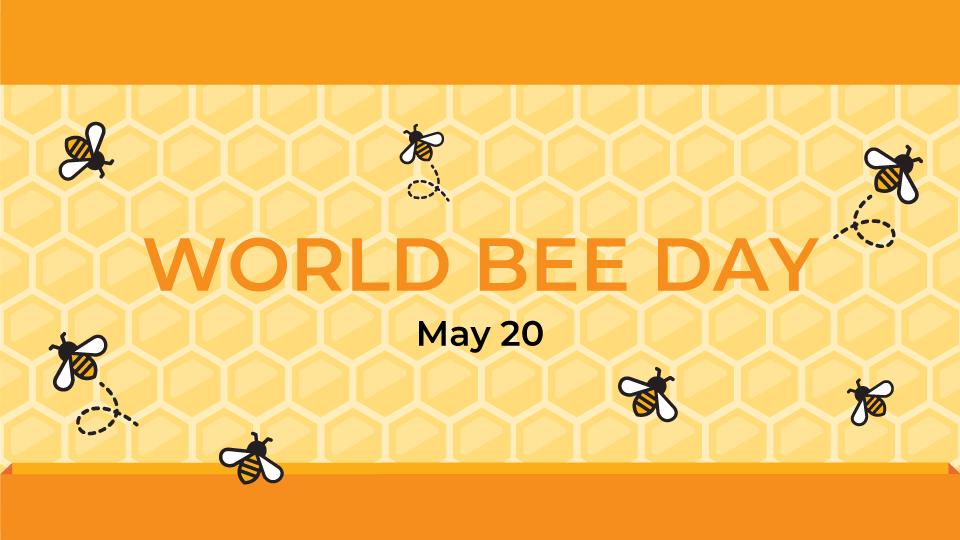Green Group statement on the occasion of World Bee Day 2020

This year, 20 May – World Bee Day – is taking place during the COVID-19 pandemic, bringing new focus to the importance of safe and sustainable food, in which bees and other pollinators have a vital role. The members of the Green Group – Cabo Verde, Costa Rica, Iceland, Singapore, Slovenia and the United Arab Emirates – stress their commitment to conserving our natural habitat, thus helping protect the pollinators that provide one-third of our food.
Bees and other pollinators are indispensable for our global food security and nutrition. They contribute to the richness and diversity of agriculture, as well as to the abundance and variety of the food on our plates. According to the Food and Agriculture Organization of the United Nations (FAO), a third of all food produced in the world, i.e. every third spoon, depends on pollination. The COVID-19 crisis has laid bare the dire need to move from unsustainable models of food production and consumption to sustainable and environmentally viable food systems.
Bees and other pollinators represent an important source of income for farmers and the economy in general. They help preserve and generate employment in agriculture, especially small and family farms in developing countries. By transitioning to environmentally friendly and climate-smart agricultural approaches, we can protect pollinators and contribute to the eradication of poverty, hunger and malnutrition.
Bees and other pollinators have positive effects on the entire ecosystem and help protect biodiversity that is essential for preserving natural habitats and thus humanity itself. It provides food, fuel and oxygen, cleans water and air, stabilises weather and climate, increases the ability to adapt to changes, creates and renews soil fertility, detoxifies and breaks down waste, and pollinates plants, including numerous crops. It suppresses pests and agricultural crop diseases, preserves genetic sources that are crucial for the development of new varieties, medicines and other products, and provides cultural and aesthetic benefits. Bees are also a good biological indicator of environmental conditions. Through observation of their development and health status, we can detect changes in the environment and take prompt action.
In addition to promoting and raising awareness of the importance of bees and other pollinators through the World Bee Day, Slovenia is supporting sustainable agriculture and beekeeping, protecting biodiversity, sharing knowledge via the Slovenian Beekeeping Academy, training beekeepers, adapting beekeeping approaches and technologies, and planting honey plants more resilient to climate change. With its rich and long tradition and knowledge of beekeeping, Slovenia is helping developing countries to improve farmers’ income and honey production, and thus promote pollinators and biodiversity conservation. Slovenia is devoting special attention to educating youth through different national and international projects, like ”Traditional Slovene Breakfast”, ”European Honey Breakfast” and beekeeping school clubs. In order to protect high diversity of wild pollinators, Slovenia is enhancing the conservation status of their habitats. The protected area management authorities raise awareness about the importance of wild pollinators among local inhabitants and visitors.
Singapore has begun a range of conservation initiatives and educational programmes to conserve native bees. One of the key projects is a “Bee Trail”, which features “bee hotels” and diverse bee-attracting plants for the public to view bees up close. Nearly 40 species have been recorded along this trail, including nine species found to be using the “bee hotels”. Singapore also conducts outreach about the importance of bees at festivals and other events. Bees were part of a national showcase about pollinators at the 2018 edition of the Festival of Biodiversity, an annual flagship event for biodiversity conservation and outreach in Singapore.
Although the UAE lacks ideal weather conditions for beekeeping, honey has long been among its traditional food products. At present, local beekeepers are working with the relevant entities to produce a hybrid breed of bees adaptive to the country’s hot and arid desert climate. The UAE seeks to create an ideal environment for setting up small and medium-sized beekeeping enterprises, drive innovation in the field, establish sales channels for locally produced honey through retail stores, organize specialised events and exhibitions, and combat pests and diseases affecting bees. The government has developed an online knowledge base for the sector, organizes relevant capacity-building and training programmes, and facilitates the exchange of experience in beekeeping and honey production and trade. The country supports the growth of the beekeeping community through the “My Hive” programme that enables residents to purchase beehives, located on a remote site and tended to by professionals, in return for a guaranteed annual yield of honey. It also launched the Hatta Honeybee Garden and Discovery Center, open to the public, that plays a key role in raising awareness about the importance of pollinators in the food chain and about various ways of protecting them.
Global challenges such as the unprecedented loss of biodiversity, climate change and the spread of devastating pandemics stress the urgency of reconsidering our relationship with nature. We need rapid action at all levels in order to realise the 2050 Vision for Biodiversity, “Living in harmony with nature”. The Summit on Biodiversity, to be held in parallel with this year's General Assembly of the United Nations, will be an opportunity to demonstrate the ambition for accelerating action on biodiversity for sustainable development. The members of the Green Group will highlight the loss of pollinators as an important biodiversity issue in the post-2020 global biodiversity framework.
FAO celebrated World Bee Day 2020 with a special virtual event.
